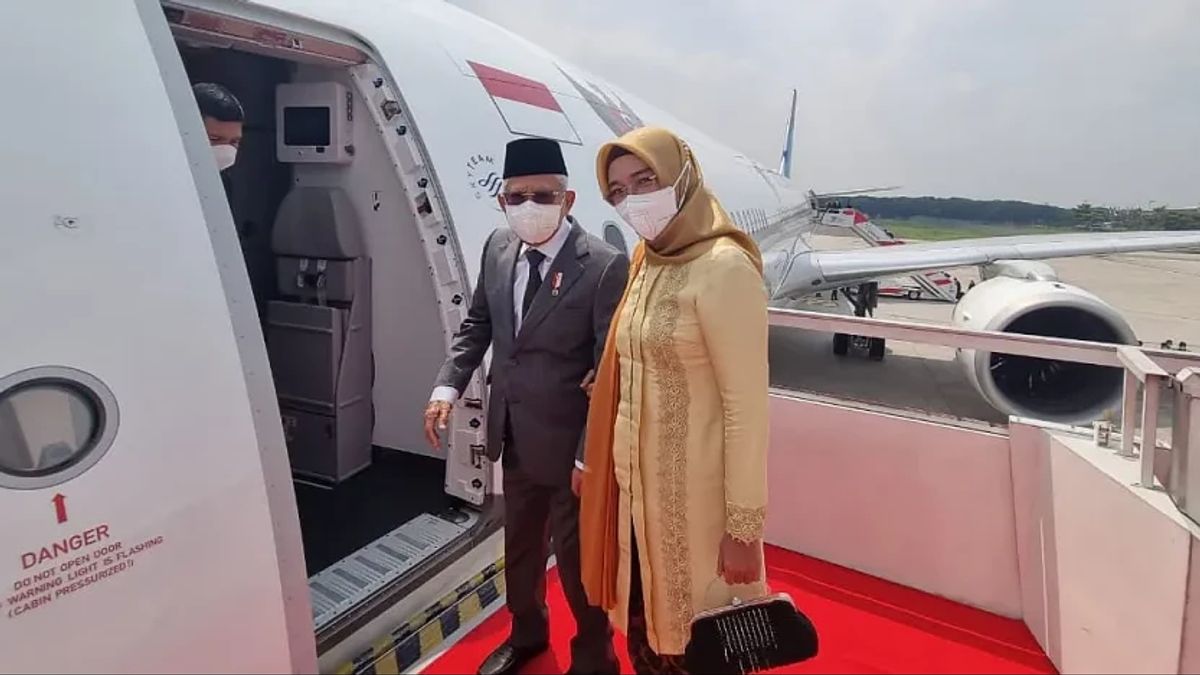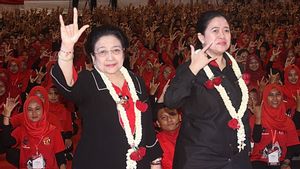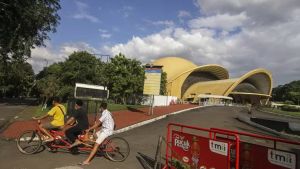JAKARTA - Vice President (Wapres) Ma'ruf Amin asked the PCINU or the Egyptian Nahdlatul Ulama Special Branch Management to continue to maintain the mindset of Nahdlatul Ulama alias NU which is moderate, dynamic, and still has a clear scientific basis.
This was conveyed by the Vice President when he received the Egyptian PCINU ranks on the sidelines of a working visit in Cairo, Egypt, on Sunday, November 6.
"In the past, NU was also conservative, especially before the NU Congress in Lampung in 1992, so that the so-called decision-making system within NU was born, which I call the dynamics of thought," said the Vice President in a written statement, quoted from Antara, Monday, November 7.
"That's NU's frame of mind, he's not static, not liberal, but he's moderate, dynamic, but also manhaj," continued the Vice President.
Therefore, the Vice President hopes that the NU mindset will continue to be used to address all issues, including in the life of the nation and state.
"We can hear various opinions, but we have to filter whether it meets the criteria for the NU mindset or not," he said.
For example, continued the Vice President, regarding the debate between Muslim kaffah not the Republic of Indonesia and the Unitary Republic of Indonesia not being Muslim kaffah, NU responded to this with an approach that did not contradict each other and negated each other.
“This is the thought that I raised and now it has begun to be understood by many parties. But I ask that this NU pattern of thinking continues to be socialized," he asked.
The Chairperson of the Tanfidziyah PCINU Ahmad Rikza Aufarul Umam reported to the Vice President that the Egyptian PCINU in terms of education currently focuses on classical and contemporary scientific discourse, and is oriented toward the production of scientific works.
"And as directed by the Vice President, we also encourage the Egyptian PCINU study institutions to lead to strengthening studies on religious moderation," he said.
PCINU Egypt is also strengthening research and innovation among Indonesian students in Egypt.
“There is a lack of research methodology here. At the Al-Azhar campus, research methodology is not directly taught, so the Egyptian PCINU has taken the initiative to build a research and literacy culture, including through collaboration with the National Research and Innovation Agency," he explained.
SEE ALSO:
Furthermore, Rikza said that in developing this research culture, the Egyptian PCINU currently has obstacles related to access to Indonesian and religious scientific journals, especially at the national level, because all of them are paid, so he asked the Government for assistance to facilitate access to these journals.
Meanwhile, in the social sector, said Rikza, PCINU Egypt cooperates with the Amil Zakat, Infaq, and Sadaqah NU (LAZISNU) Institutions to manage and empower zakat funds, as well as emergency funds to guarantee student safety and health.
"Then regarding economic empowerment, PCINU Egypt currently manages several business units, there are Indonesian culinary restaurants, then lodging, and goods or cargo expedition services for sending student books back to Indonesia," he added.
Lastly, regarding the strengthening of the sharia economy, said Rikza, the Egyptian PCINU has initiated the establishment of the Sharia Economic Community (MES) two years ago.
"Regarding digital literacy, we are also working on a project for the promotion of the archipelago's treasures and the thoughts of Indonesian scholars including Sheikh Nawawi Al-Bantani to be widely promoted internationally by being translated into English and Arabic," he said.
The English, Chinese, Japanese, Arabic, and French versions are automatically generated by the AI. So there may still be inaccuracies in translating, please always see Indonesian as our main language. (system supported by DigitalSiber.id)















